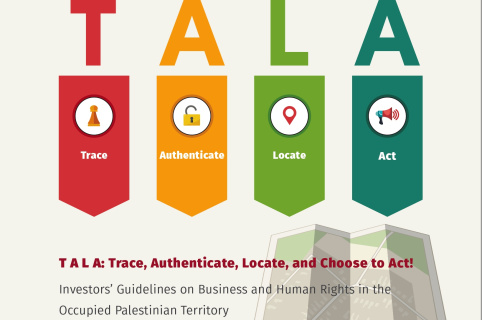
The Investors’ Guidelines on Business and Human Rights in the Occupied Palestinian Territory (OPT) aim to inform investors, as well as policymakers and civil society working in the field of business and human rights, on the contextualization of corporate responsibility and the application of enhanced human rights due diligence in the Occupied Palestinian Territory1 (OPT) as defined by the United Nations Guiding Principles on Business and Human Rights (UNGPs) and other complementary guidelines such as the Organization for Economic Co-operation and Development (OECD) Guidelines for Multinational Enterprises.
Since 1967, Israel has occupied the Palestinian territory, encompassing the West Bank, including East Jerusalem, and the Gaza Strip. Israel’s administration of the occupied Palestinian territory is primarily regulated by international humanitarian law and international human rights law, along with applicable provisions of international criminal law and customary international law.
It is important to note that Israeli settlements constructed in the OPT are illegal and constitute a flagrant violation of international law. This has been reasserted through United Nations (UN) Security Council Resolution 2334 of 23 December 2016. Similarly, recognition of the illegality of the settlements has been reaffirmed in hundreds of UN General Assembly resolutions as well as in the reports of the UN Secretary-General.
In addition, regional organizations including the Arab League, and the European Union (EU) and its member states maintain the longstanding position that Israeli settlements in the OPT are illegal under international law. Al-Haq monitors and documents corporate complicity in human rights violations in the OPT and the involvement of Israeli and international companies in the illegal settlement enterprise. It is time to ensure that businesses conduct enhanced corporate due diligence assessments to prevent human rights violations and to take all necessary steps to meet their obligations expressed in national laws, in the UNGPs, in the OECD guidelines on business and human rights and in international law governing military occupation and international armed conflict.

